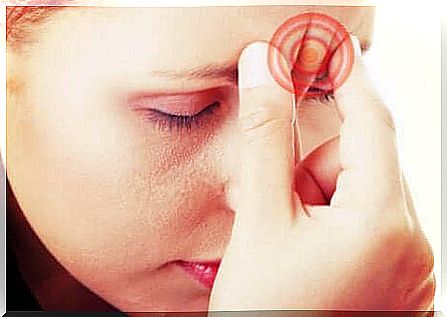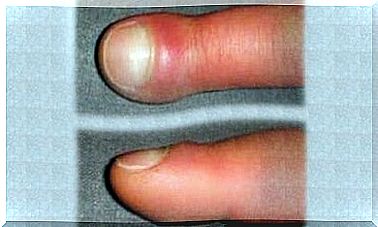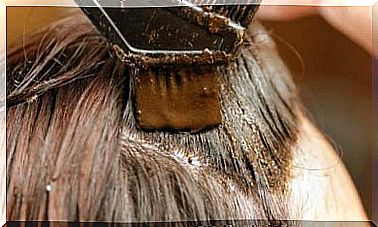Primary And Secondary Headache From Coughing
There are different types of headaches of varying intensity caused by coughing. Find out more about this topic today.

Coughing can cause primary or secondary headaches , especially if there are other symptoms, but most of them are not severe. It often occurs with a dry or long-lasting cough.
From a physical point of view, this type of headache is very easy to explain: the cough increases the pressure on the chest, neck and head areas. If this is repeated often, it creates a headache.
If coughing causes primary or secondary headaches , you should definitely see a doctor to avoid possible consequences and rule out more serious illnesses.
What are primary and secondary headaches caused by coughing?

Today we are talking about a rather rare side effect of cough. In some cases, the pressure and exertion cause headaches, much like sneezing, singing, blowing the nose, laughing, crying or defecating.
There are two different types of headache:
- Primary headaches that occur for a limited time, usually only last a very short time and go away on their own.
- Secondary headaches, which are more severe as they are associated with a brain malformation. In this case, surgery may be necessary.
Primary headaches caused by coughing are usually harmless. They are more common in people over the age of 50. The pain is moderate to intense but only lasts very little over two hours. This coughing headache can be felt all over the head, in the area above the neck or on one side.
However, secondary headaches arise due to an illness that manifests itself when coughing. It could be a brain malformation, aneurysm, or a tumor. Usually, if you cough, the signs worsen.
Causes of primary and secondary headache with cough
The exact cause of the primary headache is unknown. However, it is known that smokers and allergy sufferers (environmental allergies such as pollen allergy) suffer from it more often.
Other possible causes are:
- Asthma: Asthma can also cause primary headaches if you have a cough, especially if you have a dry cough. This creates increased pressure in the skull, which can trigger the pain. After the asthma attack, the pain disappears.
- Sinusitis increases the pressure in the sinuses, which can also cause a headache.
- An inflammation of the throat or larynx could also be the trigger.
The most common cause of secondary headache from coughing is Chiari malformation (type 1). It is a small anatomical deformity. Other causes can be: brain tumor, other malformations, vascular weakness or the sudden loss of liquor.
Primary and secondary cough headache: symptoms

Primary headaches caused by coughing are stabbing, acute, and intense. However, they usually do not last longer than two hours. There are no further symptoms. If the patient experiences nausea, sensitivity to light, tears, etc., it may be a migraine headache.
Secondary headaches have similar symptoms, but there are also some differences. Because they can be accompanied by instability, dizziness or fainting. They also last longer.
If coughing causes this type of headache in anyone under the age of 50, it may be a suspected brain malformation or injury; especially if the pain manifests itself in the throat and neck area.
Diagnosis and prevention
The diagnosis is made based on the analysis of the medical history and various examinations. Age (under or over 50 years of age), gender (primary headaches are more common in men) and any illnesses that may be present (such as asthma, sinusitis …) are taken into account.
The doctor may do a magnetic resonance and / or request a computed tomography. These imaging tests can be used to find out the cause of the headache.
The best prevention is to take care of your respiratory system. Because bronchitis, asthma, sinusitis, pharyngitis or other complaints can trigger headaches. It is also important to avoid excessive exertion and to get the flu vaccine annually after consulting your doctor.









